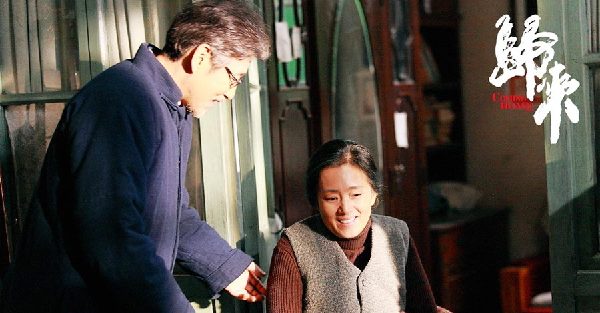 |
|
A still photo from Zhang Yimou's "Coming Home." [Photo/news.cn/ent]
|
"In this film, Zhang Yimou doesn't use magnificent scenery to impress audiences. Rather he tries to evoke their emotions in an aesthetic way," says Yin Hong, a professor at Tsinghua School of Journalism and Communication.
Zhang has returned to his love of films with depth and soul, turning his back of commercial crowd pleasers, adds Yin.
Zhang's career peaked from the '80s through the early '90s, when he focused on the gritty realities of life. But with Hero, he began to direct commercial blockbusters.
After 2002, Zhang directed expensive martial arts films with epic scenes, including House of Flying Daggers (2004), Curse of the Golden Flower (2006) and A Simple Noodle Story (2009). They received mixed reviews from critics and audiences.
Zhang has the artistic capacity to depict emotions and sex in their extremes, says Zhang Yiwu, a professor at Peking University. The focus on emotions between Lu Yanshi and Feng Wanyu in Coming Home is Zhang's attempt to return to his gritty style.
Coming Home is also the first collaboration between Gong Li and Zhang since Curse of the Golden Flower in 2006. "Gong Li is Zhang's exquisite inspiration for every film during his peak period," says Zhang Yiwu, adding that working with Gong is another sign of Zhang's return to his artistic roots.
"But one film like Coming Home doesn't mean Zhang will simply return exclusively to art films," says Zhang Yiwu. The director reveals something new in every film, he adds.
Zhang's films are noted for their rich use of color. The muted use of color in his latest movie means it is different from his earlier art films, including the Red Sorghum and Raise the Red Lantern (1991).
Coming Home has attracted a niche audience so far. The prospects for Chinese cinema is bright but finding an audience is a different question for every Chinese director, Zhang Yimou included, says Zhang Yiwu.
We recommend:
